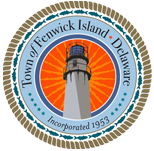Go Green
Water Quality:
Delaware’s Inland Bays consist of three interconnected bodies of water in southeastern Sussex County: Indian River Bay, Little Assawoman Bay, and Rehoboth Bay. The bays and their tributaries cover about 32 square miles and drain a land mass -called the “watershed”- of about 320 square miles. The Inland Bays are shallow, with an average depth ranging from 3 to 8 feet.
Because the bays are so shallow, and because they are poorly flushed by tidal movement, they are especially sensitive to environmental changes. Increases in pollutants, changes in salinity and fluctuations in water temperature, for example, can have dramatic effects on water quality and on the plants, fish, shellfish, and microscopic creatures that live in the bays.
The Center for the Inland Bays is an active partner with the Delaware Department of Natural Resources and The University of Delaware. Together these organizations monitor water quality and take pro-active steps to insure that everyone can enjoy the “other side” of the Delaware shore.
At the December 6, 2019 Council Meeting, the Town Council unanimously approved funding for 2 projects sponsored by the Center for Inland Bays:
- Economic Valuation of the Inland Bays Study Project, which is a study to measure the economic value of the Inland Bays based on investment of cleaning up the bays.
- Expansion of the Oyster Gardening in Fenwick Island, which is program that employs the use of volunteers to raise small amounts of oysters in the waters that surround their docks and bulkheads that will then be used in restoration projects and improving the water quality in the bay.


